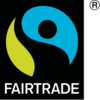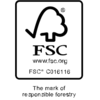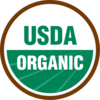Submitted by Student Associate Jessica Oliver
Being a Millennial, I like to pride myself on knowing the newest phrases that seem to pop up every other day. Recently, I've tried to live a greener life. With our environment needing more attention and care, I'm working to make my own habits more sustainable. Yet every time I walk into a store like Target, I’m overwhelmed by the amount of phrases that I don’t know. I’ll walk through the food storage aisle and see “BPA Free!” and I think “Wow, that’s great! (I don’t know what BPA is, but hey, it’s BPA free!”) I figured I’m not the only one that feels lost when I’m out shopping, so I decided to put this resource together for anyone who may feel confused by some of the labels on products or foods.
B-Corporation

A B-Corporation, or B-Corp, is a business that has met high standards of “social and environmental performance, accountability, and transparency.” B-Corps understand that a company affects more than just its shareholders, so the aim for certified B-Corps is to help better the community around them through different aspects of their business. Visit their website here to learn more!
BPA Free
BPA is short for bisphenol A which is a chemical used to make some plastics. These plastics are often used in water bottles and food storage containers. The chemical can seep into food or drinks that are stored in containers made with BPA. However, the FDA has stated that BPA is safe at very low levels.
Cruelty-Free

This is a term given to products that are not tested on animals. There are several independent organizations that offer cruelty-free certifications. Some products may have been manufactured without animal testing, but will not be labeled as such if the parent company is not cruelty-free. Official third-party verified logos typically contain a rabbit, however, not all logos with a rabbit are official. It is important to recognize which logos are from verified sources. The first logo in the image is from Cruelty Free International and is the only label that is recognized internationally. The second image is the cruelty-free label from PETA in the United States. The third image is from Choose Cruelty Free Australia but can still be found on products in the United States.
Fair Trade

A product labeled as fair trade means the company provides workers with livable wages and safe working conditions. The company also takes care to be as environmentally friendly as possible. A key point of fair trade certified companies is that they provide transparent supply chains, meaning consumers can know where each part of the product came from. There are five fair trade organizations commonly recognized in the U.S., and they all vary slightly in their missions, requirements, and procedures. These five organizations are Fair for Life, Fair Trade USA, Fairtrade International, World Fair Trade Organization, and Fair Trade Federation. Each of these organizations has its own fair trade logo that you might see in stores and this website offers explanations of the differences between these logos and organizations.
Free Range
When it comes to meat, eggs, and other animal products, free range means the animal was either held in natural conditions or allowed to roam outdoors for part of the day as opposed to being indoors for 24 hours. However, the USDA only has legal standards for chicken, not eggs or other livestock. When it comes to free range chickens they must spend an “undetermined” amount of time outdoors. In other words, these chickens could spend most of the day outside or they could spend the day indoors with an open window. When it comes to eggs or other livestock the term free range has no legal meaning. Companies can use this label any way they want. Here is an article from Consumer Report's Greener Choicesexplaining free range in more detail.
Forest Stewardship Council (FSC)

FSC stands for Forest Stewardship Council, an organization that sets the standards for responsible forest management. The FSC is supported by the Sierra Club, National Wildlife Federation, Natural Resources Defense Council, the World Wildlife Foundation, among other environmentally conscious organizations. The Forest Stewardship Council works with companies to ensure the protection of forests. You may have seen this logo on printer paper, paper towels, toilet paper, etc. You can learn more about what the FSC does on their website.
Genetically Modified Organism (GMO)
GMO stands for genetically modified organism. This means that some part of a plant, animal, or other organism’s genetics has been altered in a laboratory. The end product of this alteration does not occur in nature or through “traditional crossbreeding methods”. The reason for genetically modified organisms is to help the organism withstand pesticides and in the end, produce a bigger yield for farmers. However, there is very little evidence to show that GMOs actually produce bigger yields or health benefits to the consumer. Unfortunately, the safety of GMOs is still unknown. To learn more about what GMOs are, click here.
Household Hazardous Waste (HHW)
The EPA considers household products that can catch fire, explode under certain circumstances, or have corrosive or toxic properties to be hazardous waste. Household products like paints, oils, batteries, and cleaners may be considered as hazardous waste. HHW requires special management when it comes to disposal. Many cities have specific procedures when it comes to HHW disposal. Please visit the EPA's website to find which products are considered to be HHW and how to properly dispose of them.
Non-GMO Project
The Non-GMO Project is a third party organization that handles the verification of non-GMO foods and products. The Non-GMO Project states that since products with GMOs aren’t required to be labeled there should be a way for consumers to know if what they’re buying has been genetically modified. The goal of this organization is to educate consumers about the ingredients in the products and foods they purchase, as well as provide consumers with helpful tools to make informed decisions about their purchases. The Non-GMO Project constantly updates its standards in order to stay up to date with the ever-evolving technology used to create GMOs. Click here to learn more about the Non-GMO Project.
Organic

Products that are grown without the use of pesticides, genetically modified organisms or synthetic fertilizers are considered organic. Organic animal products such as meat, eggs, and dairy are considered organic if the animal was not given growth hormones or antibiotics. Animals are also in free-range environments that follow standards set by the government. According to the USDA, there are several categories of organic foods, they are as follows
- 100% Organic -- made with only organic ingredients
- Organic -- the product is made with 95% organic ingredients
- Made with Organic Ingredients -- products that are made with at least 70% organic ingredients. The last 30% of ingredients must not include GMOs or genetically modified organisms.
- Any product that is made with less than 70% organic ingredients cannot say organic on the front of the package but can list the organic ingredients on the side
Visit the USDA Organic website to learn more about requirements companies must meet, research the USDA has conducted, and more.
Parabens
The term "paraben" refers to a category of preservatives that can be found in toothpaste, deodorant, lotions, soaps, other beauty products, and some food. Its main purpose is to prevent the growth of fungus and the FDA has set limits on the amount of parabens a product can contain. However, there have been some studies that suggest parabens can accumulate in the body and can potentially lead to health concerns. More research is being done on how parabens affect the body. The European Union banned parabens from being used in products in 2012 and some health advocates are pushing for the United States to do the same.
Rainforest Alliance Certified

Farms, forests, and tourist companies can all be Rainforest Alliance Certified. Those that are certified are held to high social, economic, and environmental sustainability standards. When it comes to farms or agriculture, companies must abide by standards that focus on biodiversity conservation, natural resource conservation, improved livelihood and well-being, and effective planting and farm management systems. When it comes to forests, Rainforest Alliance is part of the Forest Stewardship Council (FSC). Rainforest Alliance Certified tourist companies are required to help protect nearby ecosystems, use natural resources wisely, and help the social and cultural development of nearby communities. To learn more about what it means to be Rainforest Alliance Certified visit their website.
Sulfates
Sulfates, specifically sodium lauryl sulfate (SLS), are commonly found in soaps and cleaning products. Their main purpose is to act as the foaming agent in cleansers, and they also work to help remove dirt and grease. One of the reasons many companies are now making sulfate-free products is because SLS can cause skin irritation and harm to the environment in large enough quantities. It’s important to know that SLS is not carcinogenic. Other sulfates that may be carcinogenic are banned from being used in cosmetic products. To learn more about sodium lauryl sulfate please click here.
Vegan

Vegan is a term used to describe someone or something that doesn’t use anything that comes from an animal. This includes meat, leather, milk (or anything with dairy), honey, etc. The above logo comes from Vegan Action, a non-profit organization that “works to eliminate animal suffering, reduce environmental impacts, and improve human health.” Vegan Action works to certify individual products that contain no animal by-product, not the products company.